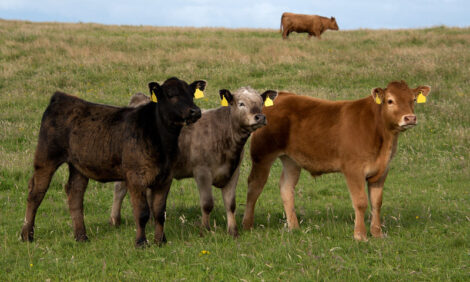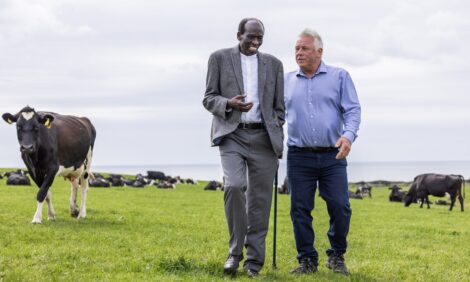



Production Cuts and Unity Required by Dairy Sector
ANALYSIS - Dairy stakeholders are urging European unity in the dairy supply chain as they see their market struggle to adjust to a life without Russian custom.Last month’s sanctions added more downward pressure to a dairy market already heading downhill after Chinese demand petered out this year.
This followed strong dairy prices in 2013, caused in part by China’s forward buying, say market analysts at UK levy board DairyCo.
Higher production through the northern hemisphere summer led to cheaper global dairy trade values as European farmers had a mild spring and dairymen pushed feed in light of lower feed costs following a better harvest.
Rising cow numbers in the US and favourable weather and feed values resulted in strong output across many dairying regions.
In light of this, DairyCo has advised farmers to conquer low prices with efficiency, adding that there will be some relief from lower feed prices.
Farmers should liaise with processors over requirements and transparent contracts, they added.
“Overall, having an efficient and effective supply chain will help maximise the value of milk through harder times,” DairyCo advised.
“It is therefore critical that the industry continues to work together,” referencing the Leading the Way growth strategy as a demonstration of market unity.
On the continent, European Milk Board President (EMB) Romuald Schaber said the onus rests on policy makers to oversee a voluntary production cut for stability.
This is in addition to private storage aid for milk powder, butter and selected cheese, confirmed by the European Commission last week.
"The fact that the European Commission reacted to the import ban was important. However, the planned private storage aid for butter, skimmed milk powder and certain cheeses and the extension of the period for public intervention do not provide a sufficient solution,” said Mr Schaber.
Quota has to be used as an instrument while still in force, he insisted, advocating it ahead of more expensive farm support measures.
Looking to 2015, Mr Schaber saw Europe having few options in dealing with minor crises post-quota, notwithstanding a Russian import ban.
Such uncertainty is probable if the industry reacts like the Swiss did when quotas ended there, according to a Swiss farm spokesperson.
Swiss Farmers’ Union President Markus Ritter told the EMB that farmers must unite, unlike the divided Swiss producers when their quota was terminated five years ago.
Stressing the importance of added value and cost covering, Mr Ritter said: “The question is whether in such a big structure as the EU producers will be able to unite and control the volume in line with the market.”
Michael Priestley
News Team - Editor
Mainly production and market stories on ruminants sector. Works closely with sustainability consultants at FAI Farms



